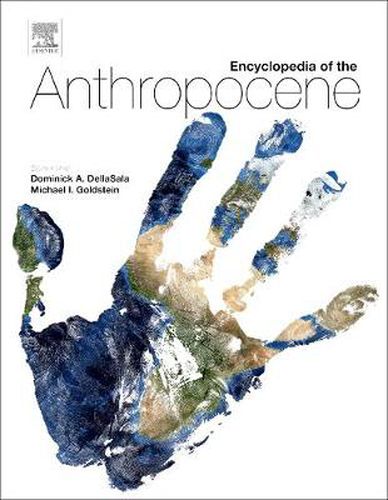Readings Newsletter
Become a Readings Member to make your shopping experience even easier.
Sign in or sign up for free!
You’re not far away from qualifying for FREE standard shipping within Australia
You’ve qualified for FREE standard shipping within Australia
The cart is loading…






Encyclopedia of the Anthropocene presents a currency-based, global synthesis cataloguing the impact of humanity’s global ecological footprint. Covering a multitude of aspects related to Climate Change, Biodiversity, Contaminants, Geological, Energy and Ethics, leading scientists provide foundational essays that enable researchers to define and scrutinize information, ideas, relationships, meanings and ideas within the Anthropocene concept. Questions widely debated among scientists, humanists, conservationists, politicians and others are included, providing discussion on when the Anthropocene began, what to call it, whether it should be considered an official geological epoch, whether it can be contained in time, and how it will affect future generations.
Although the idea that humanity has driven the planet into a new geological epoch has been around since the dawn of the 20th century, the term ‘Anthropocene’ was only first used by ecologist Eugene Stoermer in the 1980s, and hence popularized in its current meaning by atmospheric chemist Paul Crutzen in 2000.
$9.00 standard shipping within Australia
FREE standard shipping within Australia for orders over $100.00
Express & International shipping calculated at checkout
Encyclopedia of the Anthropocene presents a currency-based, global synthesis cataloguing the impact of humanity’s global ecological footprint. Covering a multitude of aspects related to Climate Change, Biodiversity, Contaminants, Geological, Energy and Ethics, leading scientists provide foundational essays that enable researchers to define and scrutinize information, ideas, relationships, meanings and ideas within the Anthropocene concept. Questions widely debated among scientists, humanists, conservationists, politicians and others are included, providing discussion on when the Anthropocene began, what to call it, whether it should be considered an official geological epoch, whether it can be contained in time, and how it will affect future generations.
Although the idea that humanity has driven the planet into a new geological epoch has been around since the dawn of the 20th century, the term ‘Anthropocene’ was only first used by ecologist Eugene Stoermer in the 1980s, and hence popularized in its current meaning by atmospheric chemist Paul Crutzen in 2000.